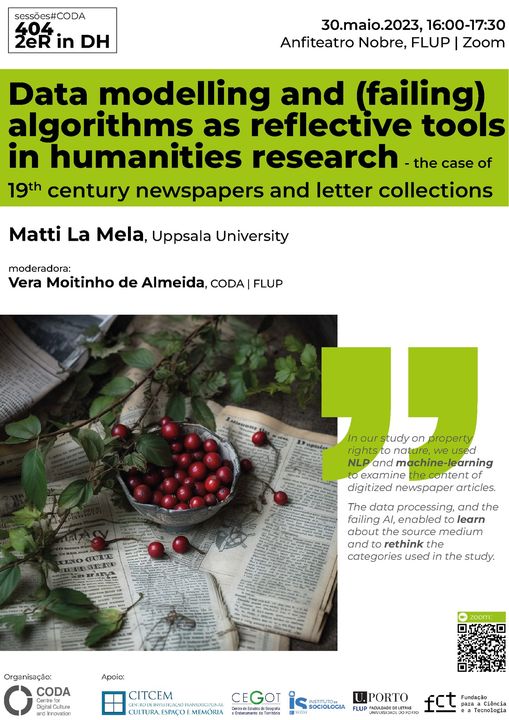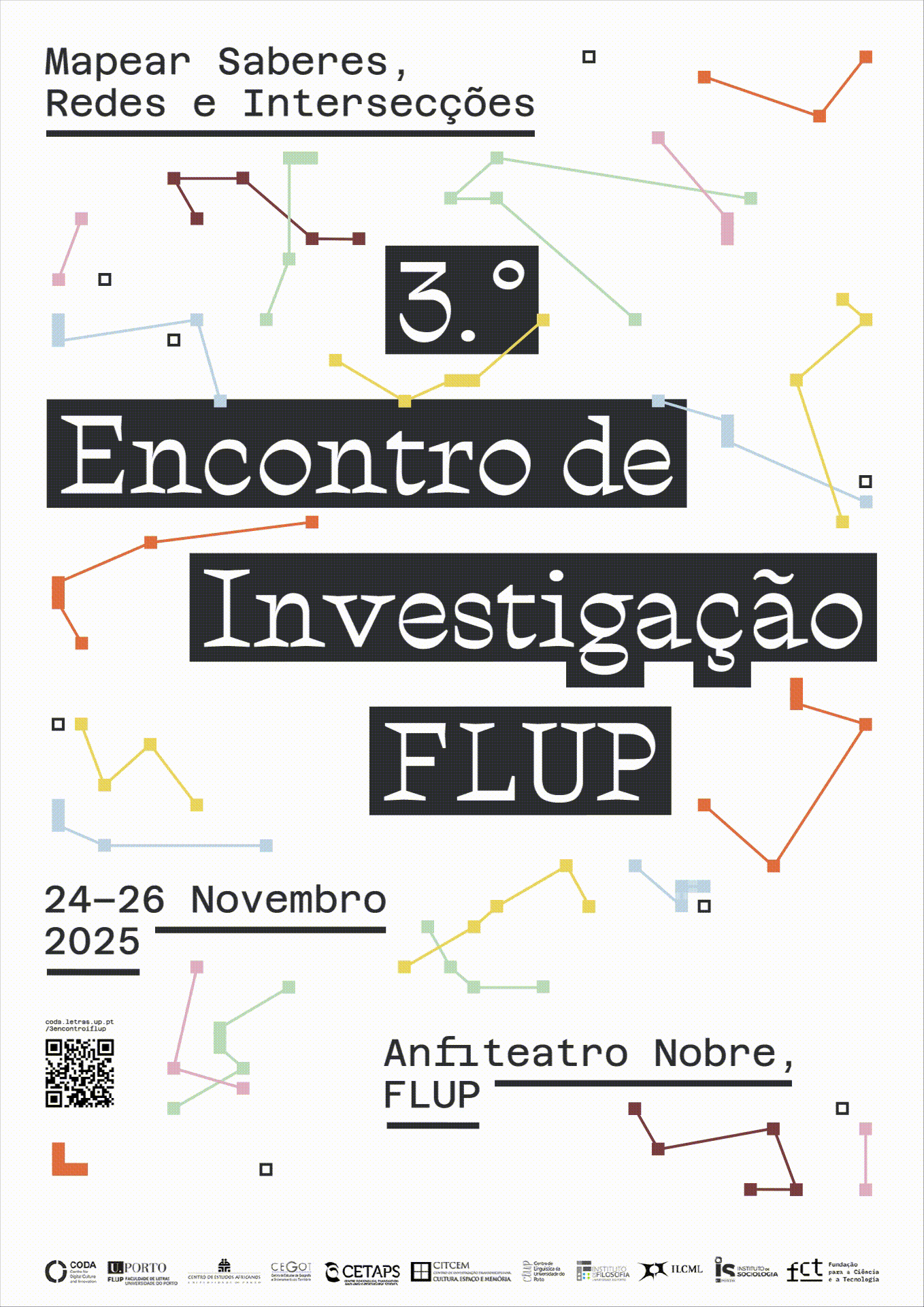The case of 19th century newspapers and letter collections
30.May | 16:00-17:30 (GMT +1) | Anfiteatro Nobre - FLUP, UPorto
Zoom: https://lnkd.in/dMyW_UMR
Lecturer: Matti La Mela, Uppsala University
Moderation: Vera Moitinho de Almeida, CODA | FLUP
Abstract:
In this presentation, I will talk about how data modelling and processing, often time-consuming activities in digital humanities research, offer possibilities for discovery and creativity in interdisciplinary settings as part of the research process. Instead of focusing uniquely on data and its quality, researchers can (and should) actively employ the challenges (and failures) in data work to rethink the research problem and research design.
I will discuss this interest in the “margins” of data work through two digital humanities projects that focus on 19th century history: First, in our study on property rights to nature, we used NLP and machine-learning to examine the content of digitized newspaper articles. The data processing, and the failing AI, enabled to learn about the source medium and to rethink the categories used in the study. Second, in the project Constellations of Correspondence (CoCo), 19th century letter metadata are gathered from Finnish cultural heritage organizations into a linked open dataset to study epistolary culture and networks. The data modelling and processing work has enabled to review the research design and to reflect on questions about authorship, the status of the letters, and the representativeness of the letter collections.
Matti La Mela is an assistant professor in digital humanities at the Department of ALM at Uppsala University. His background is in social science history and he has broad experience in multidisciplinary digital humanities research. His recent work has focused on methods in digital history, property rights on natural resources, innovation history, and research infrastructures (parliamentary data, historical patent data).
#CODA 404 2eR in Digital Humanities is a cycle of lectures and workshops exploring the multiple ways in which research in the field of digital humanities may stray or deviate from 'correct' or 'expected' practices and methods. Intended to be a thought-provoking series of talks for anyone interested in the intersection of humanities, social sciences, technology, and art, these lectures will present unconventional perspectives on the ways in which digital methods and tools can be used to challenge and subvert traditional ways of thinking, creating, and doing.

